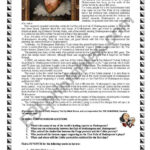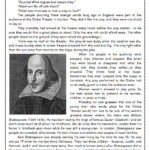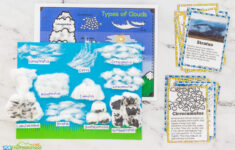William Shakespeare Reading Comprehension Worksheet – Do you struggle with understanding Shakespeare’s works? Fear not! With a little bit of practice and a sprinkle of fun, you can easily master reading comprehension of the Bard’s famous plays and sonnets. Let’s dive into Shakespeare’s world and learn how to understand his words with ease!
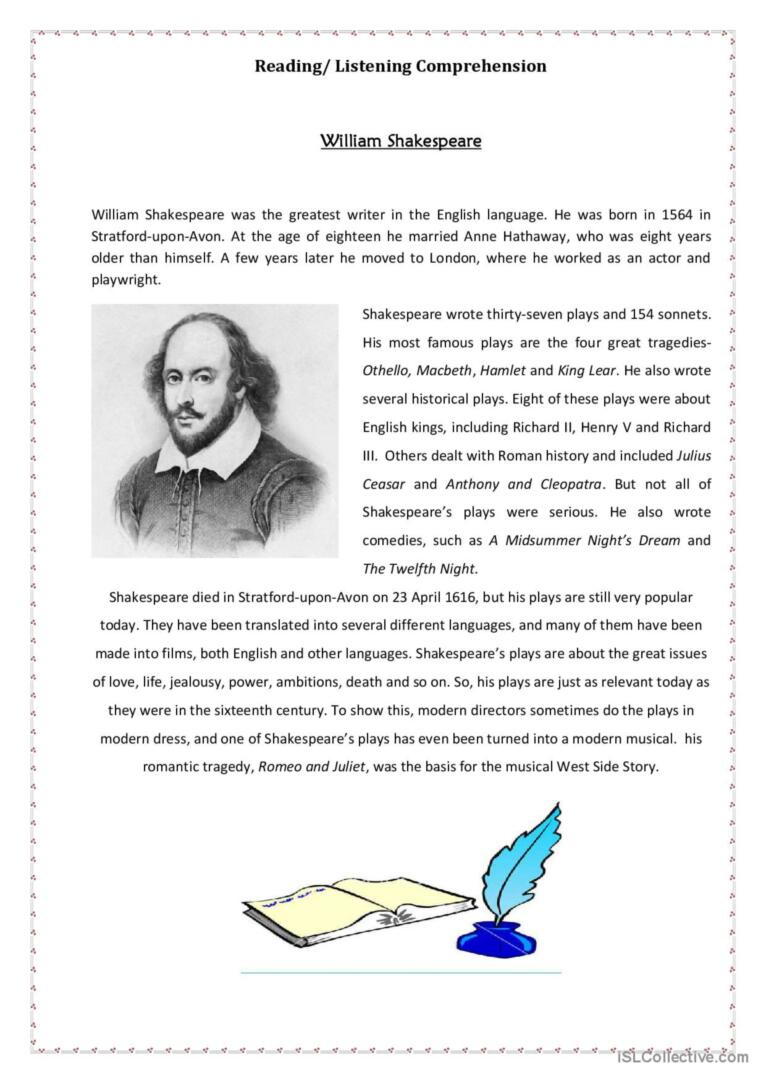
Dive into Shakespeare’s World
Step into the fascinating world of Shakespeare by immersing yourself in his plays and sonnets. Explore the intricacies of his characters, the richness of his language, and the depth of his themes. Don’t be intimidated by the old-fashioned language – embrace it! As you delve into his works, try to visualize the scenes, imagine the characters, and feel the emotions that Shakespeare intended to convey. By immersing yourself in Shakespeare’s world, you’ll find reading comprehension becomes a delightful adventure rather than a daunting task.
To enhance your understanding of Shakespeare’s works, consider watching live performances or movie adaptations of his plays. Seeing the words come to life on stage or screen can help you grasp the context, emotions, and nuances of the language. Additionally, listening to audio recordings of the plays can improve your comprehension by allowing you to hear the rhythm and flow of Shakespeare’s verse. Remember, Shakespeare’s works were meant to be performed, so experiencing them in different formats can enhance your appreciation and understanding of his genius.
Don’t forget to explore the historical and cultural context of Shakespeare’s plays. Understanding the societal norms, beliefs, and events of Shakespeare’s time can provide valuable insights into his works. Research the Elizabethan era, learn about the political climate, and discover the influences that shaped Shakespeare’s writing. By connecting his works to the world in which he lived, you’ll gain a deeper understanding of the themes and messages woven into his plays and sonnets.
Learn to Understand His Words
One of the keys to mastering reading comprehension of Shakespeare is familiarizing yourself with his language. While Shakespearean English may seem daunting at first, it’s simply a matter of practice and patience. Start by studying common Shakespearean words and phrases, such as thou, thee, and wherefore. Understanding the meanings of these words can help you decipher the dialogue and monologues in his plays. Additionally, familiarize yourself with iambic pentameter, the rhythmic pattern often used in Shakespeare’s verse, to appreciate the musicality of his language.
As you read Shakespeare’s works, pay attention to the imagery, metaphors, and wordplay he employs. Shakespeare was a master of language, using clever wordplay and vivid imagery to convey complex ideas and emotions. Take note of the recurring themes, symbols, and motifs in his works, as they often offer clues to the deeper meanings of his texts. By analyzing the language and literary devices used by Shakespeare, you’ll develop a greater appreciation for his writing and enhance your reading comprehension skills.
To further enhance your understanding of Shakespeare’s words, consider using study guides, annotated editions, or online resources that provide explanations and analyses of his works. These tools can help clarify difficult passages, provide historical context, and offer insights into the themes and characters in Shakespeare’s plays. Don’t be afraid to ask questions, seek out additional resources, and engage in discussions with fellow Shakespeare enthusiasts to deepen your understanding and appreciation of his timeless works.
Mastering reading comprehension of Shakespeare is not as daunting as it may seem. By immersing yourself in his world, learning to understand his language, and exploring the richness of his words, you can unlock the beauty and brilliance of Shakespeare’s works. So grab a copy of your favorite play, put on your thinking cap, and embark on an exciting journey into the captivating world of Shakespeare!
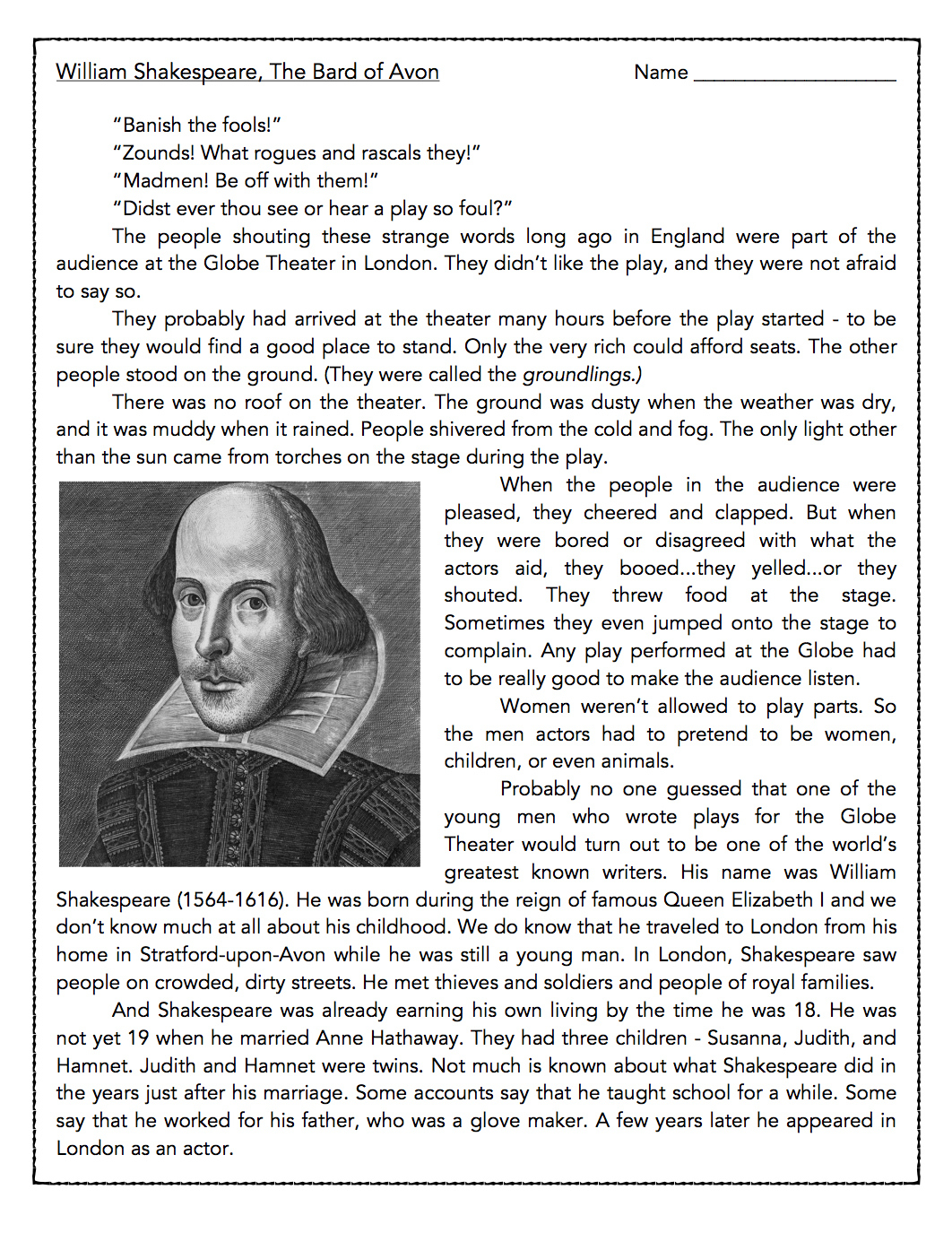
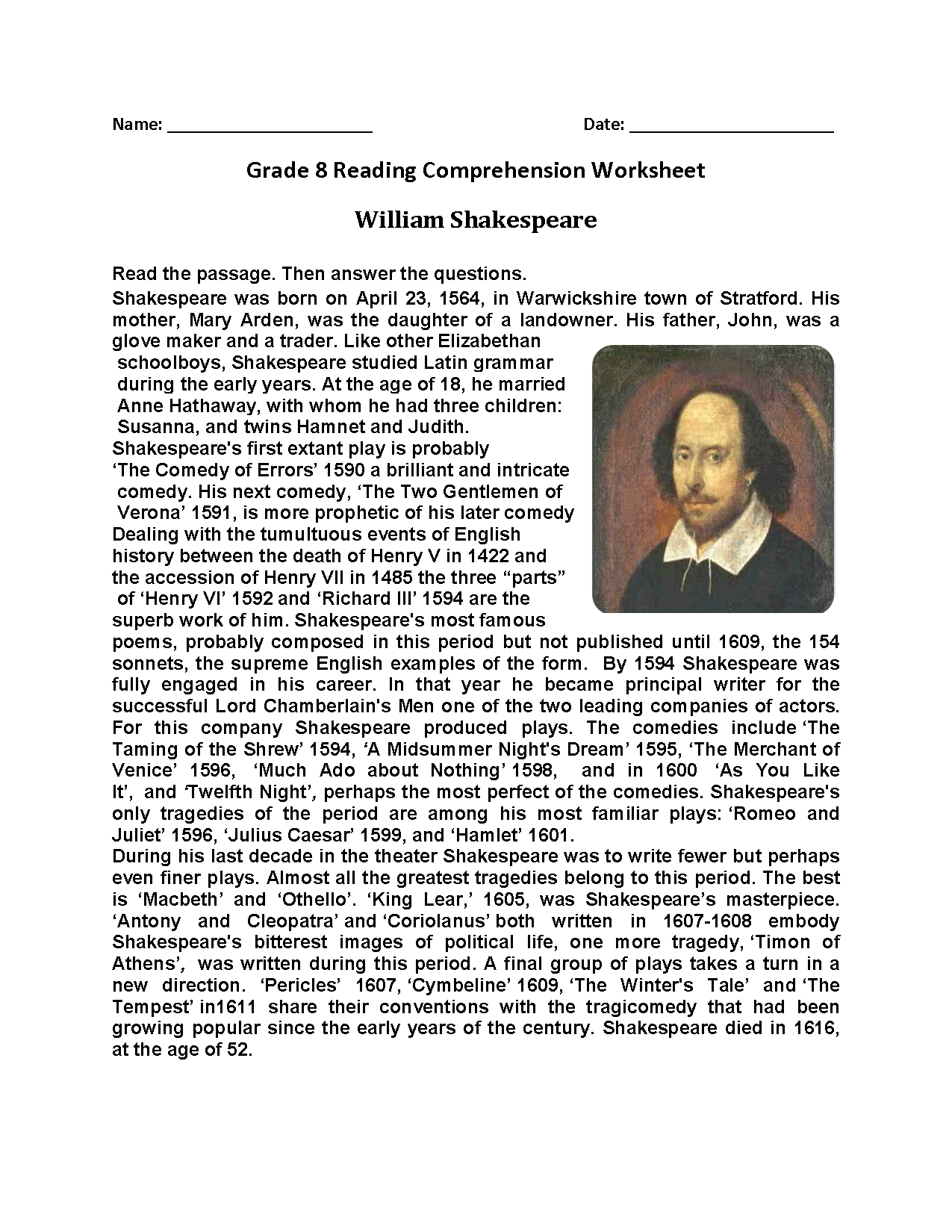
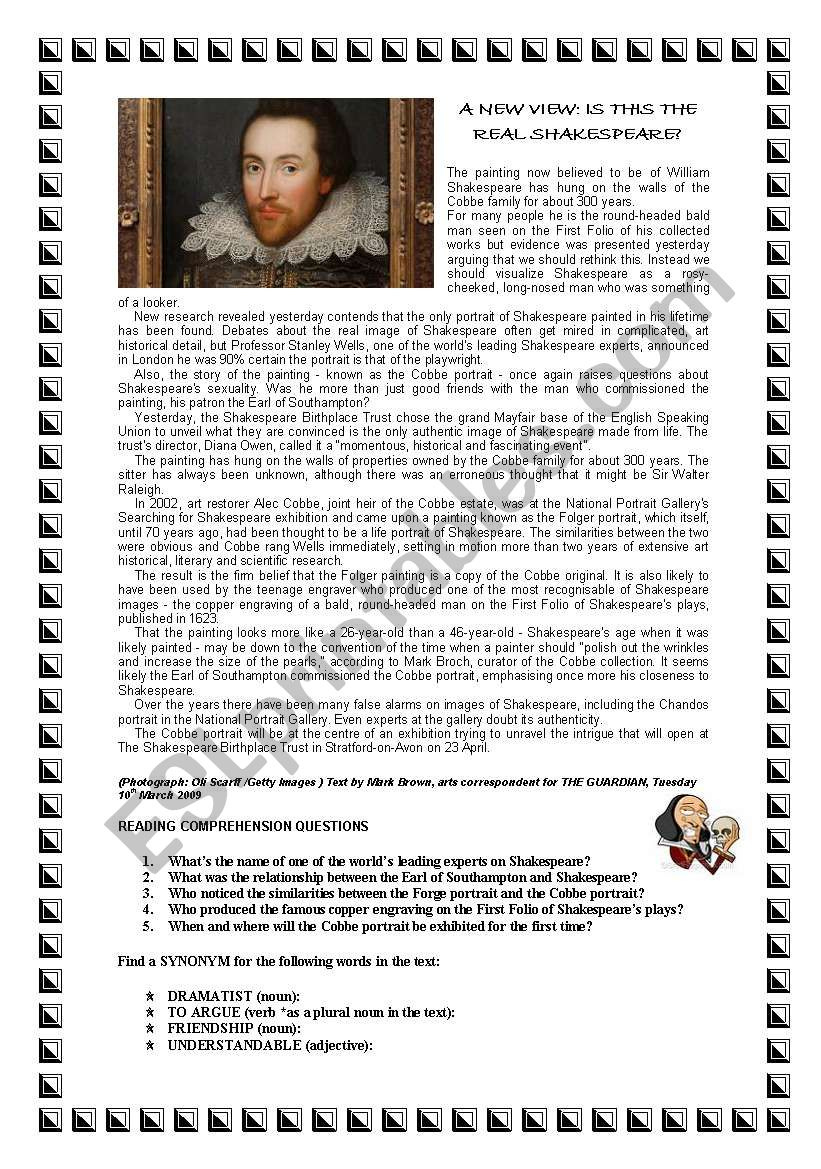
MORE READING COMPREHENSION WORKSHEETS…
Disclaimer: The Reading Comprehension Worksheets on this site come from various online sources. We do not own them, and copyright belongs to the original creators. Whenever possible, we provide attribution and links or remove content upon request.

